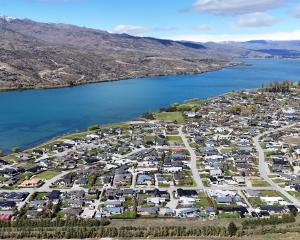
Q As the manager for Central Otago health provider Uruuruwhenua Health you have a focus on improving Maori health. What is the most effective way to do that?
Enabling clients to have equitable access to the spectrum of health services, including mental health.
Q Where and how does Uruuruwhenua Health operate and which are your most effective programmes?
Uruuruwhenua Health operates in the greater Central Otago district (Makarora, Cromwell, Alexandra, Ranfurly, Roxburgh and Millers Flat). We provide free primary healthcare clinics out of normal business hours, a prescribing nurse service based in our rooms in Alexandra, cooking and nutritional classes for mums and their children, exercise programmes to reduce the incidence of diabetes (this includes gym programmes and swimming classes) and do ongoing work with whanau around a multitude of social services and agencies. We also work with [Central Otago Maori resource/support group] Te Roopu Awhina, based here in Alexandra.
Q Why is a specialist service needed to address Maori health outcomes?
Maori health status is much lower than the rest of the population and life expectancy is dramatically less than other ethnicities, therefore early intervention improves longer term outcomes and reduces the financial burden on the overall health system.
Q How has Uruuruwhenua Health’s latest contract helped improve its service?
The latest contract improves our resource base and adds a fulltime equivalent, Alva Bennett, who specialises in working with youth, and this enables us to work with whanau in a concerted way. A whanau ora approach is used to address pathways to enable positive change(s) both for the individual or the whanau as a whole. We work to enable clients to achieve the best outcomes for themselves.
Q What is your vision for Uruuruwhenua Health? If it had more funding, what else could it do?
We would engage staff who could provide specialist youth alcohol and drug services. While there are a number of good services available in the community, the waiting times prevent immediate support for those affected. Social housing would decrease the burden for lower socio-economic families; any opportunity to encourage the development of a social housing programme in the district would be welcomed by Uruuruwhenua Health.
We would love to have a dedicated site that enabled us to provide a diverse range of services on a daily basis, this would include gardens, health clinics, educational programmes, food and nutrition programmes, more diverse medical services (including cervical and breast screening), mental health services (all ages), alternative education resources for those who don’t fit within the current system and a community centre for those who would wish to utilise it.
Q What is your vision for Maori and our nation? How can we help ensure people from all cultures become the best they can be?
For Maori: equitable access to services across the spectrum. For all cultures: reduce the barriers to health and social services, especially for those who choose to reside in a rural environment.
Q What other experiences have you brought to your role? And what does the future hold for you, within and outside of work?
I have a funding background based within the Public Health Directorate of the Ministry of Health. I also worked across the South Island negotiating contracts for the Vodafone network. These experiences have given me a sound background in negotiation skills in both the commercial and the health and social services sectors.
I enjoy living and taking advantage of what Central Otago offers and I get concerned that local government and government be mindful of the infrastructure required to support our growing population, the increasing tourism numbers and the inherent challenges that this places on our environment.












